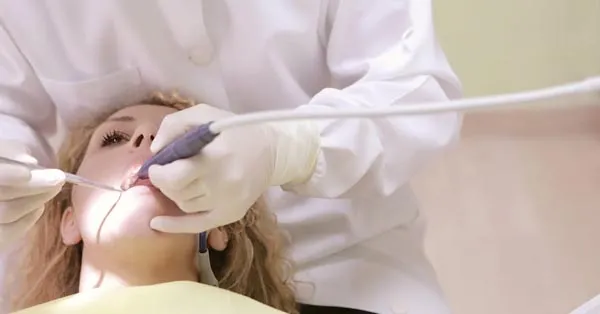Common Types of Oral Surgeries and What You Can Expect
By: Dental Pointe
From wisdom tooth removal to a reconstructive operation, each oral surgery type has different functions. Determine which of them is suitable for your needs. The Woodview Oral Surgery Team
There are several conditions that may warrant getting oral surgery in Naperville. Sure, no one relishes the idea of surgery; however, your Naperville oral surgeon is ready to share some facts that will ensure that you're prepared for your upcoming procedure. Here are some of the most common types of dental surgeries and what you can expect when you come into our office:
Impacted Wisdom Teeth
These third molars are the last teeth to develop. While sometimes these teeth may erupt and not cause the patient any issues, more often than not these teeth either don't fully erupt or aren't properly aligned. This causes them to become impacted between the gums and the jawbone, which will also affect the health of surrounding teeth.
Dental Implants
To replace a missing tooth, we will surgically implant a metal post into the jawbone, which will fuse with the gum tissue and bone over time. This creates a strong foundation on which to place a realistic-looking artificial tooth (or crown). Dental implants are great for those with tooth loss who are looking for a long-term treatment option.
Biopsies
If you have a lesion in your mouth that looks suspect, we will perform a biopsy to check for oral cancer. We will remove a small piece of tissue and then send it to the lab for analysis.
Jaw Surgery
If your jaws aren't properly aligned, this can cause problems not only with appearance but also with function. Surgery is often necessary to correct this problem and restore function.
Sleep Apnea
If other conservative treatments don't help serious sleep apnea sufferers, then we can remove excess tissue from the back of the throat to significantly reduce symptoms.
Reconstructive surgery
Knocked-out teeth and facial injuries can make even the most everyday functions a challenge (e.g. eating). These procedures replace missing or damaged teeth, treat jawbone and gum damage, and correct jaw joint issues.
Pre-procedure
Before surgery, we will provide you with an outlined treatment plan. We will also discuss anesthesia options with you and you can feel free to ask any questions you may have about your surgery. Most surgeries are done under general anesthesia to ensure that the patient doesn't experience any discomfort.
Post-procedure
As with any surgery, there will be a recovery period. If you're under general anesthesia, you will not be able to drive yourself home afterward. You will want someone to pick you up, as you will be groggy and tired. We may prescribe painkillers for treating recovery-related pain. We will provide you with some detailed do's and don'ts for after surgery.






5 Stars
based on 48 reviews
5 Stars
based on 15 reviews
5 Stars
based on 11 ratings